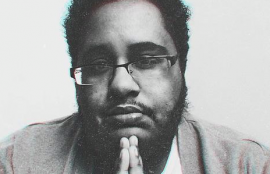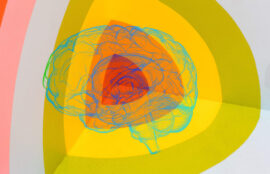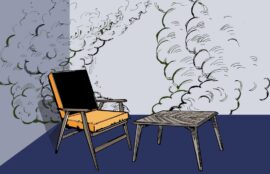Dying inevitably follows living. What makes for a good death in a just and sustainable world? I think about this a lot these days. Four years ago, at age fifty, I was diagnosed with late-stage ovarian cancer. Active and fit, it took a collapsed lung and two broken ribs before I realized I had a big problem, the ultimate challenge of life: facing my own death.
I defy every attempt to limit me to my diagnosis as I dare the world to ignore.
In the first weeks after learning I was terminally ill, I wondered, “Will I face this in my heart or in my head? In my head, it is a storyline I can make interesting, wise, and abstract. In my heart, it is a constant tremor radiating from my stomach.” As the first months of terror subsided, I began to adapt to my “new normal.” My medical team advised, “You must start living as if the next three months are your last. When you are still alive at the close, make a new three-month plan.” I resolved to hope and dream and build in smaller allocations of time.
I made huge shifts in my life, severing two critical anchor points. I moved to the city from the small town that had been my home for 25 years—my isolated existence in the woods seemed too daunting for the emotional swings of terminal cancer. I retired from the organization I had founded and that had been my life’s work for 18 years. I knew the long hours and stress of the job I loved would deplete the strength I needed for cancer treatment.
I qualified for Social Security disability income thanks to the government’s “compassion clause,” and this got me Medicare two and a half years later. I stepped into my new life determined to live as long as possible. I decided I would live to be 72 years old, 19 years longer than the statistics predicted and an age I found acceptable to die.
It’s estimated that one in three people in the United States will receive a cancer diagnosis at some point in life. Some people die quickly. Others diagnosed as terminal continue to live fully even while facing a death sentence. A friend who had watched her mother die of cancer remarked on my vivacity. In the 15 years since her mother’s death, there have been advancements that make the devastating side effects of treatment more tolerable. Still, it has taken me years after my diagnosis to re-embrace the commitments that populate a full life.
I chafe at being invisible as a person with cancer. I am a lifelong feminist and community organizer. I believe in breaking silence and sharing truth. I pass as “normal”—healthy, white, slender, and heterosexual (having a husband helps). I have lived a life of privilege. For now, I don’t look or feel like I’m dying. I am just terminally ill.
Recently I was reminded of the great Rachel Carson. She hid the pain of her end-stage cancer to keep her Silent Spring message of environmental degradation alive in Congress and mainstream conversation back in 1964.
In 2014, I can choose to be visible. I have a tattoo on my wrist declaring me a “Cancer Warrior.” I sport buttons saying “Cancer Sucks.” I pedal everywhere, slowly, on a bike that announces “Cancer on Board.” I defy every attempt to limit me to my diagnosis as I dare the world to ignore it.
We have little choice but to live in the moment; something many talk about, but few manage.
But sometimes I feel I am as isolated in shouting about my diagnosis as Rachel Carson was in secrecy. I look so good that observers may well conclude that the sign on my bike, the button on my bags, even the tattoo on my wrist represent strength and survival. Public or private, silent or loud, the outcomes are the same. Disease creates isolation and barriers from the world of the well. A friend with terminal cancer notes, “We cause discomfort to some because we are living, living in acute awareness of our impending death, living in pain but living as fully as we can while we are dying. Should we lock ourselves away in a figurative darkened room so as not to chance disturbing the hale and hearty with thoughts of death?”
(read more here: http://www.yesmagazine.org/issues/the-end-of-poverty/livingly-dying )






















Sorry, the comment form is closed at this time.